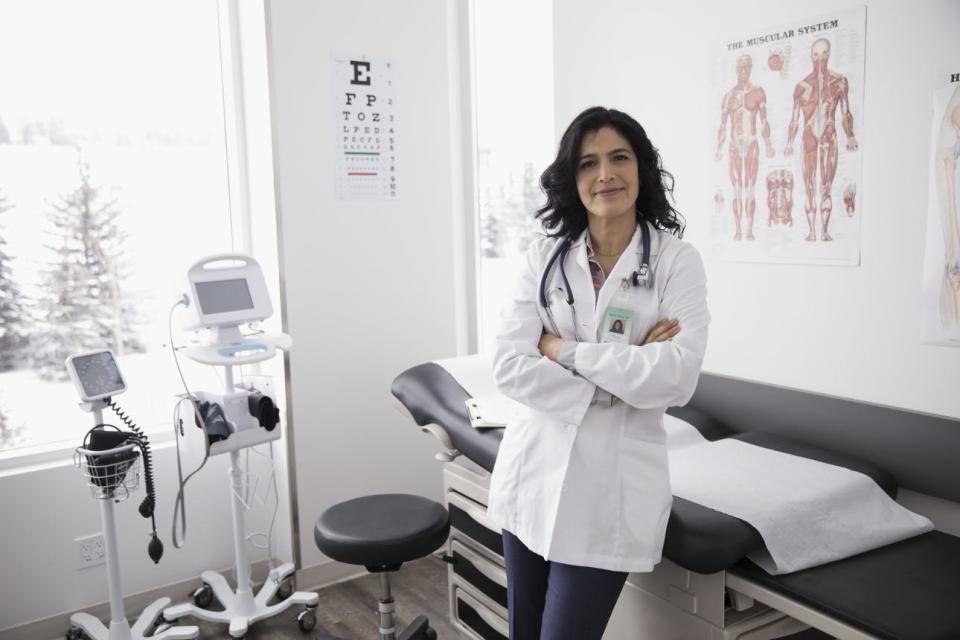The Surprisingly Essential Quality to Look for in Your Next Doctor
It only makes sense that when looking for a doctor we seek out someone with the highest level of education and experience. We associate pedigrees from respected institutions with the kind of competence that will diagnose and treat our issues with laser-beam precision. We reasonably believe years of practice mean a physician has seen it all, so they’ll know exactly how to direct our treatment toward healing.
While it’s not wrong to search for a provider with these qualifications, what if we’ve gotten things a little backwards? What if there was something more we should be looking for, something that actually tends to lead to better health outcomes? Some fascinating research suggests there is: Doctor-patient relationships of trust and mutual respect have been shown to promote healing, perhaps even more than framed degrees on the walls or number of surgeries performed. A 2017 meta-analysis of four major databases of scholarly journals found that patients reported “more beneficial health behaviors, less symptoms, and higher quality of life and to be more satisfied with treatment when they had higher trust in their health care professional.”

It’s a concept that goes further than simple bedside manner. Ideally, the most healing doctor-patient bond rests on mutual beliefs that the body can heal itself, that the patient’s intuition should be heeded, and that the exam room is a safe space for even the most sensitive confidences. “A person cannot be free to trust until they feel safe, understood, and respected,” explains Dr. Coya Lindberg, MD, a family medicine resident with a background in integrative medicine. “Without a safe space, no patient is willing to be honest with their provider, and no provider will be promoting optimal health.”
The power of this healing connection between doctor and patient was famously highlighted in a 1987 study in the British Medical Journal. Dr. KB Thomas wanted to know whether a physician’s positive attitude would affect symptom improvement for a variety of patient ailments. Using 200 patients, he divided them into groups, including one that received a positive, encouraging consultation with a physician and one that received a negative, pessimistic consultation. Nearly two-thirds of patients who received the positive consultation got better, while just under two-fifths of patients who received the negative consultation improved. Subjects had a better chance of recovery even if they simply heard the doctor say certain predictive phrases during their consultation, such as, “You’ll be better in a few days.” On the other hand, skeptical comments from the physician about a patient’s prognosis resulted in longer recovery times.
Dr. Lissa Rankin, MD, offers a theory for what’s behind this phenomenon in her book Mind Over Medicine: “When a patient who imbues the physician with positive meaning feels tended, trusting, reassured, and nurtured, the stress response is aborted. The relaxation response is induced.” The body’s relaxation response has been associated with numerous desirable health measures, like lower blood pressure, our genetic expression of immunity, energy levels, and insulin secretion, and, of course, reduced stress in general. It stands to reason that when a visit to your practitioner feels good emotionally, you’ll reap these physical benefits too.

Beyond a relationship of mutual trust, when it comes to improved outcomes, doctors’ beliefs about their patients — even when left unexpressed — actually matter too. In her book, Dr. Rankin describes a study where experts watched footage of depressed patients interacting with their doctors. The experts’ task: to predict which patients would subsequently improve. A common thread emerged. Dr. Rankin explains: “It wasn’t just whether or not the doctor and patient connected emotionally… What the doctor believed about the patient’s prognosis also turned out to be crucial. If a doctor believed that the patient would improve, [they were] more likely to do so.”
“I find that the encouragement that occurs when doctors believe in their patients’ abilities to heal is very powerful,” Dr. Lindberg concurs. Essentially, when we see our physician’s faith us, it shapes the way we think about our innate therapeutic ability. “We often are able to push ourselves more in many capacities in life with external encouragement (think during a race, an impending deadline, etc.),” reminds Dr. Lindberg. “This support is vital for patients’ well-being.”
If you’re currently on the hunt for a new doctor (or thinking of starting), keep in mind that the best choice for your health may not be the physician with the fanciest education or the longest career. Rather, focus on finding someone who believes in your ability to heal, whose consultations leave you feeling bright about the future, and with whom you can build a relationship of trust.
Got a great relationship with your doc? Tweet us how you found them @BritandCo!
Brit + Co may at times use affiliate links to promote products sold by others, but always offers genuine editorial recommendations.
(Photos via Getty)


